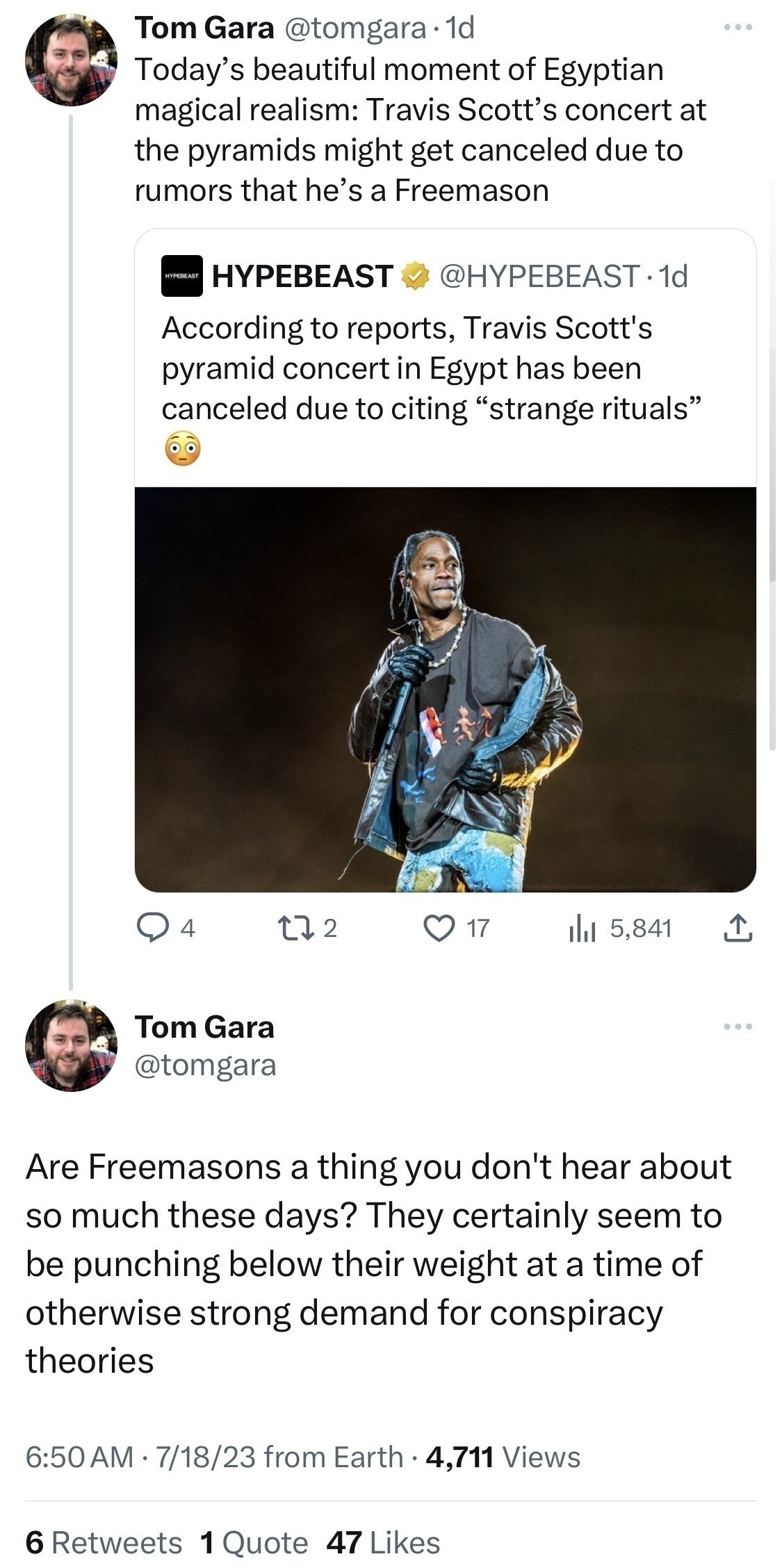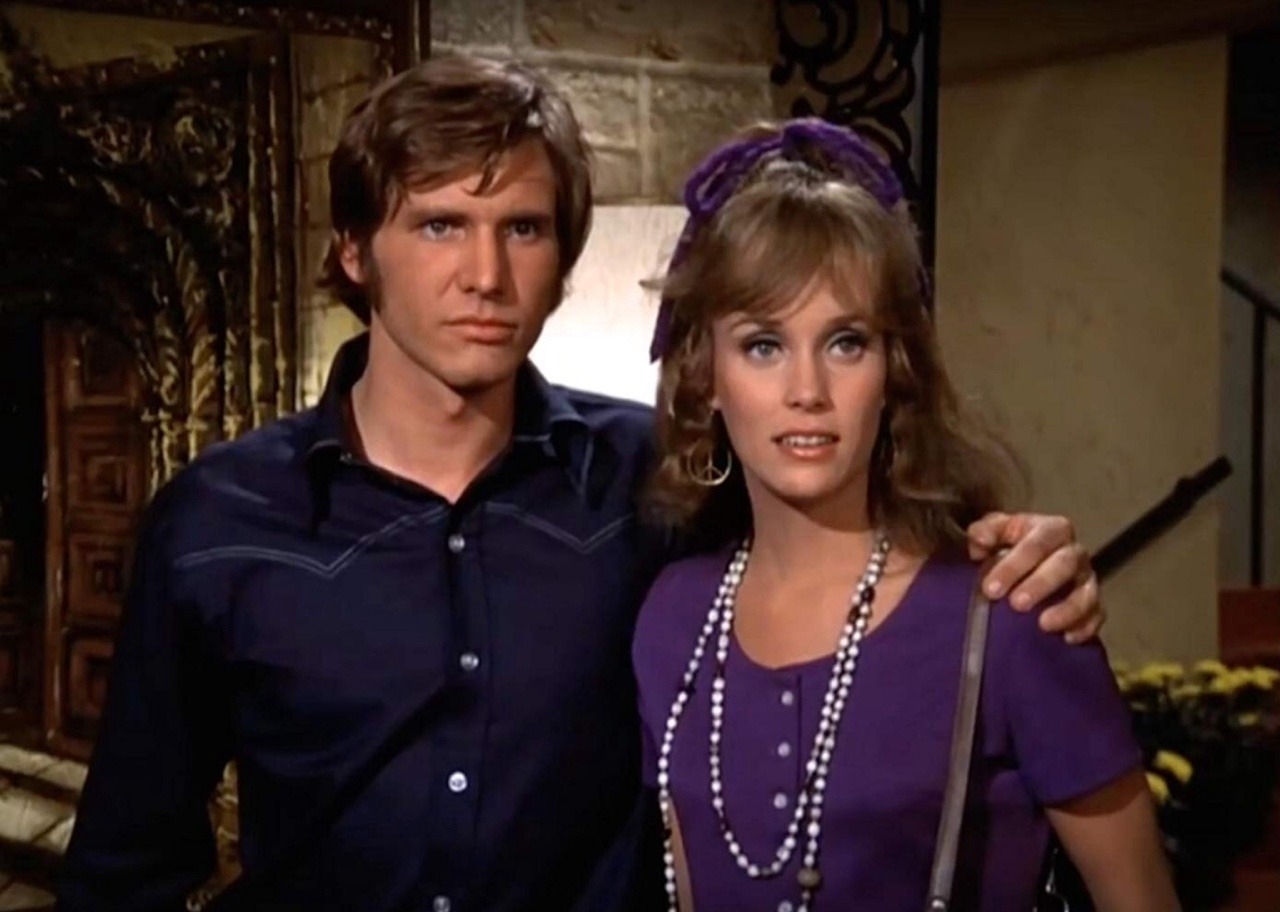Today’s ephemera: This beagle would like you to know he is helping






That moment when you drink thirstily from a big glass of water that had been sitting on the counter overnight, and notice two dead fruit flies floating on the surface of the water.
And then you convince yourself there were not three dead fruit flies.
Cosmic Crisp apples are 50% less expensive than Honeycrisp apples, and Cosmic Crisps are better. I will die on this hill.
I made several comments to Julie as I was making coffee. The last one seemed to require a response, and when none was forthcoming, I turned around to look at her to find she had left the room. Probably I’d been talking to myself the entire 10 minutes.
Comic Sans has been reinvented as a monospace font for programmers, according to this article which frames the news in vile anti-Comic Sans propaganda. I like Comic Sans. boingboing.net/2023/07/1…
Marjorie Taylor Greene is a Biden supporter now? Wait, what? boingboing.net/2023/07/1…
Dictator-wannabe Donald Trump praises Xi Jinping as a “perfect” leader who rules “with an iron fist” boingboing.net/2023/07/1…






 We’ve been watching “Yellowstone,” “1883,” and “Justified: City Primeval.” I’m trying to talk myself out of getting a cowboy hat.
We’ve been watching “Yellowstone,” “1883,” and “Justified: City Primeval.” I’m trying to talk myself out of getting a cowboy hat.
Famed Hacker Kevin Mitnick Dead at 59 www.securityweek.com/famed-hac…
Five years later, I do that with the Apple Watch when my hands are busy.
On this day in 2018: My Apple Watch alarm went off while I was watching the dishes, and without thinking about it I tapped the watch face with my nose to switch the alarm off. I believe I have hit on a breakthrough in nasal user interface design.
On this day in 2018: Today at the park we saw a black lab with its hind quarters resting in one of those wheeled harness contraptions that disabled dogs use to get around. The dog seemed nice, but Minnie took one look and said nope do not want to say hello to the evil doggy robot.
Vivek Ramaswamy repeats threat, telling two MAGA hosts that Jan. 6 was a “friendly preview of what’s to come” boingboing.net/2023/07/1…
Universal Studios trimmed a row of trees so they no longer provided shade for WGA strikers in 90+-degree heat. Strikers complain. Universal responds: Whoops. deadline.com/2023/07/u…
Germany’s denazification was compromised and accommodated powerful, wealthy former Nazis, leading to resurgence of the far right and anti-semitism in Europe today. But it’s still better than the “least said, soonest mended” school of getting past atrocities, as practiced by the US with regard to slavery and genocide of indigenous peoples. These themes are a focus of Cory’s upcoming novel, “The Lost Cause.” pluralistic.net/2023/07/1…

Harrison Ford on “Love, American Style,” 1969.

Sally Field in “The Flying Nun.”

“Room 222.”

ngl I would eat the heck out of this with plenty of Guldens Spicy Brown mustard. Via www.tumblr.com/allhailth…






1948 George Nelson Home Office Desk | Wood, Leather, & Metal | USA | Sold for $6,000 at auction. Via midcenturymodernfreak.tumblr.com/post/5578…











ME: “Get out of the way so I can get an artsy photo of those rocks.” DOG: (gets out of the way … eventually)


While walking the dog this morning, we saw this excruciatingly artistically arranged bicycle and other objects.

Mandela Goes From Hero to Scapegoat as South Africa Struggles. “Nelson Mandela is revered worldwide…. But at home, a younger generation is disillusioned with the country, his party and the anti-apartheid leader, too.” nytimes.com
Rands in Repose reviews Bear 2.0. Don’t tempt me! randsinrepose.com/archives/…
On covid, California’s supreme court just said the quiet part out loud ko-fi.com/post/On-c…
Robert Kuciemba, a woodworker in San Francisco, was infected by covid in 2020 after his company, Victory Woodworks, based in Nevada, transferred sick workers to the San Francisco site for a few months.
Nate Bear writes:
Through the proceedings of the case it turns out that the employer knew some employees might be sick but they transferred them anyway and ignored a San Francisco ordinance in place at the time to quarantine suspected covid cases.
Kuciemba was subsequently infected and he then infected his wife, who ended up in ICU on a ventilator.
The California Supreme Court just ruled against Kuciemba on the basis that a victory, while, in the court’s words, “morally” the right thing to do, would create “dire financial consequences for employers” and cause a “dramatic expansion of liability” to stop the spread of covid.
… the court agreed that there is no doubt the company had ignored the San Francisco health ordinance. In other words, they accepted the company had broken the law. And then concluded “yeah, but, capitalism.”
…
This ruling essentially helps codify workplace mass infection and justifies it as necessary for the smooth functioning of capitalism.
Privatized profit, socialized loss. Companies get to reap the financial benefit of spreading infection, and the cost of that infection is borne by employees and taxpayers.
Via www.ianwelsh.net
ChatGPT makes bad writers good and good writers better, according to a study. www.technologyreview.com/2023/07/1…
I make very little use of ChatGPT in my own work. However, I rely on two other AI products: Otter.ai for transcription and Grammarly for grammar, punctuation and tightening up verbiage.
There Will Never Be Another Second Life. (Wagner James Au / The Atlantic) The OG metaverse found a niche where it has been able to thrive for 20 years.
Texas ranks dead last in livability, and Florida is in the bottom 10 of the 50 states, due to poor healthcare, education standards and culture wars. Texas has the highest percentage of people living without health insurance, the state has the 13th highest violent crime rate, and is in the bottom third of US states for licensed childcare facilities per capita.
And Texas is targeting LGBTQ residents for persecution and restricting voting and reproductive rights.
RFK Jr bares his inner Nazi boingboing.net/2023/07/1…